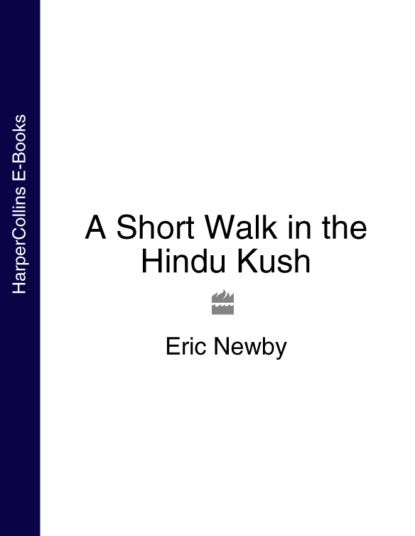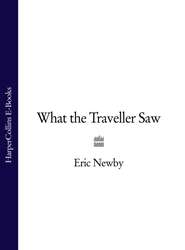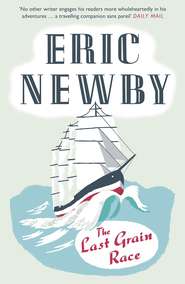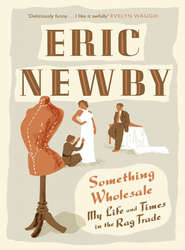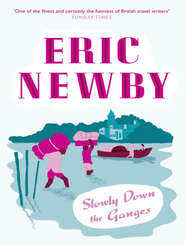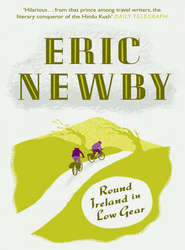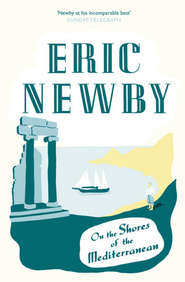По всем вопросам обращайтесь на: info@litportal.ru
(©) 2003-2024.
✖
A Short Walk in the Hindu Kush
Автор
Год написания книги
2018
Настройки чтения
Размер шрифта
Высота строк
Поля
I received only one more letter before Hugh left Rio.
If you want to take a Folboat you could make the passage down the Kabul River from Jalalabad, through the frontier gorge in Mahsud Territory, just north of the Khyber, past Peshawar and Nowshera to Attock where the waters of the Kabul and Indus rivers flow together through a magnificent defile. There on the cliffs Jelal ud Din, the young ruler of Bokhara and Samarqand, made a last stand against the Mongol hordes and, having lost the day, galloped his horse over the cliffs, which as far as I can remember are 150 feet high, swam the river, went to Delhi and carved out another kingdom.
1. (#ulink_e3734bfb-07e8-5524-9625-a314706f1867) Fortunately this was merely a plaisanterie.
CHAPTER THREE Birth of a Mountain Climber (#ulink_97cf43b9-d6cf-5d28-b7fe-6403cd241d62)
When Hugh arrived from New York ten days later I went to meet him at London Airport. Sitting in those sheds on the north side which still, twelve years after the war, gave the incoming traveller the feeling that he was entering a beleaguered fortress, I wondered what surprises he had in store for me.
His first words after we had greeted one another were to ask if there was any news from Arnold Brown.
‘Not a thing.’
‘That’s bad,’ he said.
‘It’s not so disastrous. After all, you have done some climbing. I’ll soon pick it up. We’ll just have to be careful.’
He looked pale. I put it down to the journey. Then he said: ‘You know I’ve never done any real climbing.’
It took me some time to assimilate this.
‘But all that stuff about the mountain. You and Dreesen …’
‘Well, that was more or less a reconnaissance.’
‘But all this gear. How did you know what to order?’
‘I’ve been doing a lot of reading.’
‘But you said you had porters.’
‘Not porters – drivers. It’s not like the Himalayas. There aren’t any “tigers” in Afghanistan. No one knows anything about mountaineering.’
There was a long silence as we drove down the Great West Road.
‘Perhaps we should postpone it for a year,’ he said.
‘Ha-ha. I’ve just given up my job!’
Hugh stuck out his jaw. Normally a determined-looking man, the effect was almost overwhelming.
‘There’s nothing for it,’ he said. ‘We must have some lessons.’
Wanda and I were leaving England for Istanbul on 1 June. Hugh and I had just four days to learn about climbing.
The following night after some brisk telephoning we left for Wales to learn about climbing, in the brand new station wagon Hugh had ordered by post from South America. He had gone to Brighton to fetch it. Painted in light tropical colours it had proved to be rather conspicuous in Hammersmith. Soon it had been covered with swarms of little boys and girls whose mothers stood with folded arms silently regarding it.
We had removed all the furniture from the drawing-room to make room for the equipment and stores. Our three-piece suite was standing in the garden under a tarpaulin. The drawing-room looked like the quartermaster’s store of some clandestine force. It was obvious that Hugh was deeply impressed.
‘How long have you been living like this?’
‘Ever since we can remember. It’s not all here yet. There’s still the food.’
‘What food?’ He looked quite alarmed.
‘Six cases of Army ration, compo. in fibre boxes. It’s arriving tomorrow.’
‘We can always leave it in England. I don’t know about you but food doesn’t interest me. We can always live off the country.’
I remembered von Dückelmann, that hardy Austrian forester without an ounce of spare flesh on him, who had lost twelve pounds in a fortnight in Nuristan.
‘Whatever else we leave behind it won’t be the food.’
‘Well, I suppose we can always give it away.’ He sounded almost shocked, as if for the first time he had detected in me a grave moral defect. It was an historic moment.
With unconcealed joy my wife watched us load some of the mountaineering equipment into the machine.
‘We’d better not take all of it,’ said Hugh. ‘They might wonder why we’ve got so much stuff if we don’t know how to use it.’
Over the last weeks the same thought had occurred to me constantly.
‘What about the tent?’
The tent had arrived that morning. It had been described to me by the makers as being suitable for what they called ‘the final assault’. With its sewn-in ground-sheet, special flaps so that it could be weighed down with boulders, it convinced me, more than any other single item of equipment, that we were going, as the books have it, ‘high’. It had been specially constructed for the curious climatic conditions we were likely to encounter in the Hindu Kush.
‘I shouldn’t take that, if I were you,’ said my wife with sinister emphasis. ‘The children tried to put it up in the garden after lunch. Whoever made it forgot to make holes for the poles.’
‘Are you sure?’
‘Quite sure. You know it’s got those poles shaped like a V, that you slip into a sort of pocket in the material. Well, they haven’t made any pockets, so you can’t put it up.’
‘It’s lucky you found out. We should have looked pretty silly on Mir Samir.’
‘You’re going to look pretty silly at any rate. I shouldn’t be surprised if they’ve done the same thing to your sleeping-bags.’
‘Have you telephoned the makers?’
‘That’s no use. If you send it back to them, you’ll never see it again. I’ve sent for the little woman who makes my dresses. She’s coming tomorrow morning.’
We continued to discuss what we should take to Wales.
‘I should take your Folboat,’ said Hugh. ‘There’s bound to be a lake near the inn. It will be a good chance of testing it BEFORE YOU PASS THROUGH THE GORGES. The current is tremendously swift.’
I had never had any intention of being either drowned or ritually mutilated in Mahsud Territory. I told him that I hadn’t got a Folboat.
‘I was almost certain I wrote to you about getting a Folboat. It’s a pity. There’s not much time now.’
‘No,’ I said, ‘there isn’t.’





